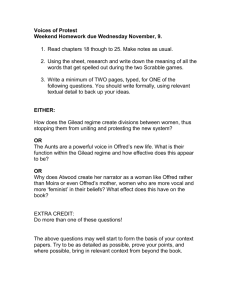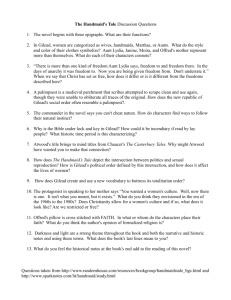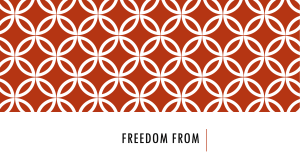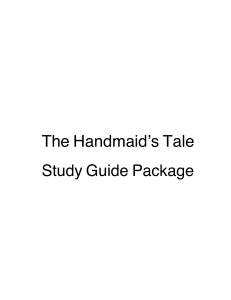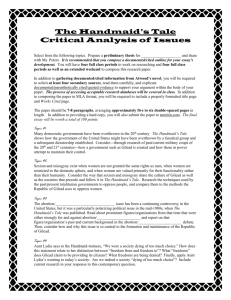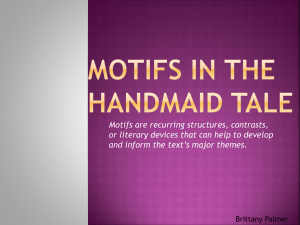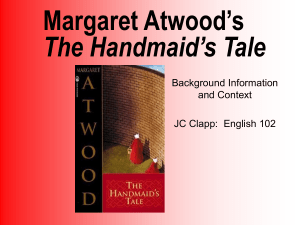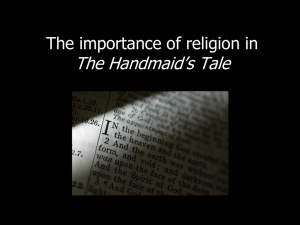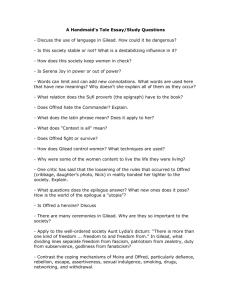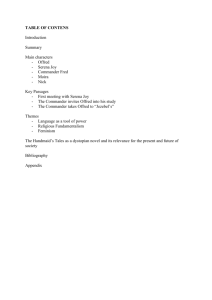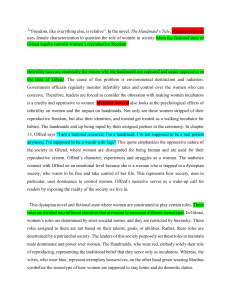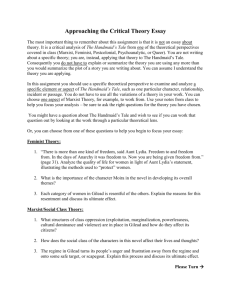The Handmaid`s Tale Envelope Topics
advertisement
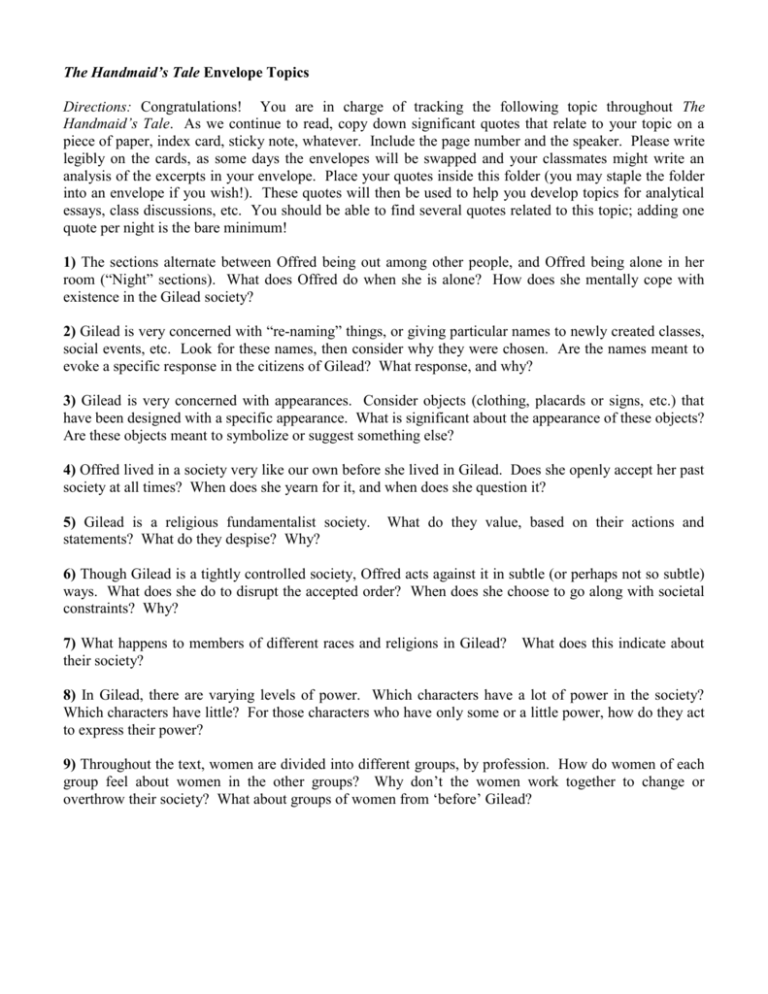
The Handmaid’s Tale Envelope Topics Directions: Congratulations! You are in charge of tracking the following topic throughout The Handmaid’s Tale. As we continue to read, copy down significant quotes that relate to your topic on a piece of paper, index card, sticky note, whatever. Include the page number and the speaker. Please write legibly on the cards, as some days the envelopes will be swapped and your classmates might write an analysis of the excerpts in your envelope. Place your quotes inside this folder (you may staple the folder into an envelope if you wish!). These quotes will then be used to help you develop topics for analytical essays, class discussions, etc. You should be able to find several quotes related to this topic; adding one quote per night is the bare minimum! 1) The sections alternate between Offred being out among other people, and Offred being alone in her room (“Night” sections). What does Offred do when she is alone? How does she mentally cope with existence in the Gilead society? 2) Gilead is very concerned with “re-naming” things, or giving particular names to newly created classes, social events, etc. Look for these names, then consider why they were chosen. Are the names meant to evoke a specific response in the citizens of Gilead? What response, and why? 3) Gilead is very concerned with appearances. Consider objects (clothing, placards or signs, etc.) that have been designed with a specific appearance. What is significant about the appearance of these objects? Are these objects meant to symbolize or suggest something else? 4) Offred lived in a society very like our own before she lived in Gilead. Does she openly accept her past society at all times? When does she yearn for it, and when does she question it? 5) Gilead is a religious fundamentalist society. statements? What do they despise? Why? What do they value, based on their actions and 6) Though Gilead is a tightly controlled society, Offred acts against it in subtle (or perhaps not so subtle) ways. What does she do to disrupt the accepted order? When does she choose to go along with societal constraints? Why? 7) What happens to members of different races and religions in Gilead? What does this indicate about their society? 8) In Gilead, there are varying levels of power. Which characters have a lot of power in the society? Which characters have little? For those characters who have only some or a little power, how do they act to express their power? 9) Throughout the text, women are divided into different groups, by profession. How do women of each group feel about women in the other groups? Why don’t the women work together to change or overthrow their society? What about groups of women from ‘before’ Gilead?
